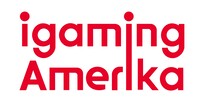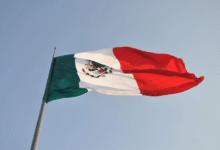Brazil’s Betting Landscape: A Look at Registered vs. Licensed Operators

Brazil’s sports betting and iGaming industry is experiencing significant growth, attracting both domestic and international companies. Over 2,200 businesses are currently registered to operate in this sector, but only a small percentage—3.5%—have secured official licenses from the Ministry of Finance to legally provide online betting services.
Data from BigData Corp indicates that, as of April, only 69 unique corporate tax IDs (CNPJs) have been granted federal licenses, covering 153 brands and 149 domains ending in “.bet.br.” This figure increases slightly to 78 when including companies with temporary court approvals. Meanwhile, the national corporate registry shows 2,212 betting-related CNPJs, a number that has grown by more than 150% in the last three years.
Thoran Rodrigues, CEO of BigData Corp, explained that the gap between registered and licensed companies highlights the strong interest in Brazil’s developing regulated market. “The licensing process is slow, but it starts with the opening of a CNPJ,” he said. Many firms, both local and foreign, are registering under the gambling activity code CNAE 9200-3/99 to position themselves for future opportunities as regulations evolve.
These registered companies collectively report a share capital of R$12 billion, with an average of R$5 million (US$880,000) per company. However, obtaining a federal license requires meeting stricter financial criteria, including a R$30 million (US$5.3 million) licensing fee. Some states offer cheaper local licenses, resulting in a varied regulatory environment across the country.
The data reveals that 64% of the industry’s capital is based in São Paulo, while the Federal District has the highest average capital per company at R$19.1 million (US$3.35 million), indicating broader national goals. Surprisingly, the North and Northeast regions, which are generally less wealthy, represent nearly 40% of betting-related CNPJs—twice their share of the overall corporate registry.
Read also: Bally’s Chicago Casino Faces Delay After Construction Halt
Rodrigues commented on this trend, noting both opportunities and challenges. “On one hand, it’s positive because it presents an opportunity for growth in the technology sector,” he said. “On the other, we know that this is a market driven by the exploitation of lower-income populations.”
Foreign involvement is notable, with gambling-related CNPJs from international headquarters being three times more common than in the broader corporate database. Many companies are also adopting white-label models, similar to those used in fintech and virtual mobile industries, where smaller entities lease infrastructure from licensed operators. This allows organizations like football clubs to offer branded betting services without needing their own licenses.
The industry has seen rapid expansion since the COVID-19 pandemic began. From just 96 registered CNPJs in early 2020, the number jumped to 837 by the end of 2021. As of now, the total exceeds 2,200, with 99 new CNPJs added in the first four months of 2025 alone. Brazil’s Betting















